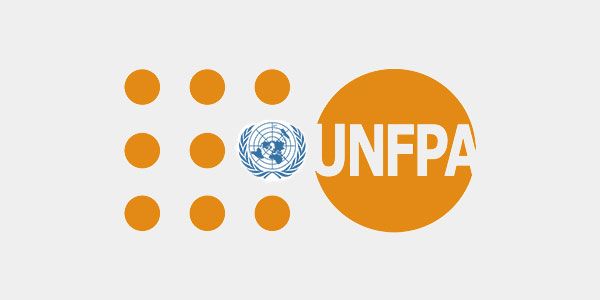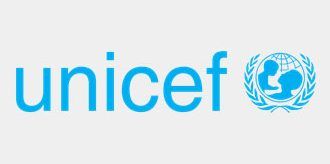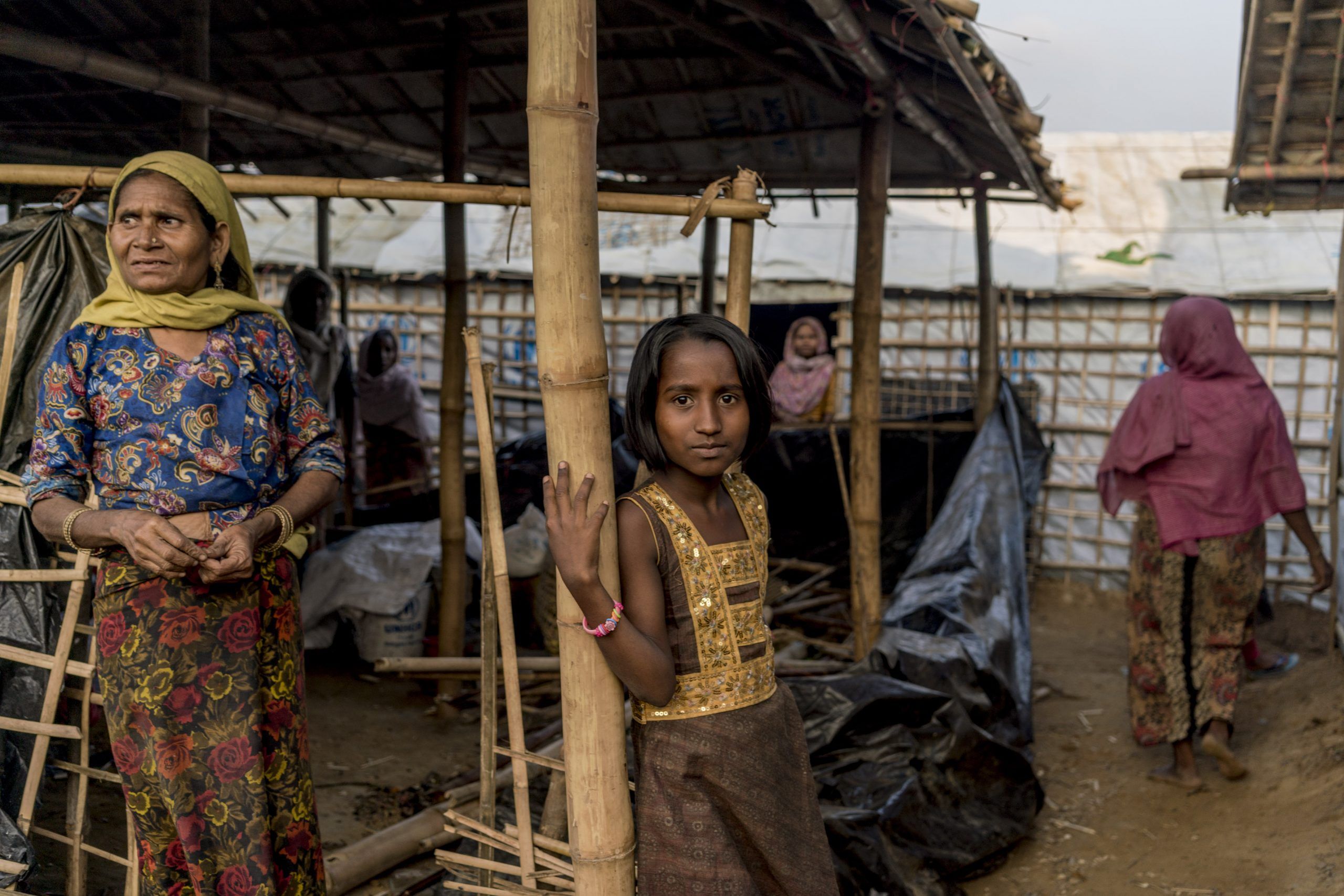The Issue
For more than four decades the Rohingya community in Myanmar has been the target of systematic discrimination, targeted violence, and oppression. The first attacks against the Rohingyas date back to the late 1970s and even with periods of relative calm there have been spikes of violence over the years.
When violence erupted again in 2017, it was of such intensity that the Rohingya community saw no other option than to leave their homes in Rakhine state in Myanmar – and the vast majority crossed the border and found shelter in Bangladesh.
In August and September 2017 Bangladesh witnessed the largest and fastest influx of refugees on record when more than 773,000 people including at least 400,000 children fled into Cox’s Bazar.
By 2022 roughly one million refugees were hosted in 34 camps in the Cox’s Bazar province in Bangladesh where they have found temporary shelter – camps that are estimated to be some of the largest camps in the world.
The people who escaped were traumatized for what had happened to them back in Myanmar. Villages burnt, women gang raped, and family members killed.
Women and girls at disproportionate risk
Even if the Rohingyas have fled violence, peace is relative. Unemployment, illiteracy, and a lack of opportunities has created a dangerous atmosphere that poses a risk to the safety, security, and wellbeing of everyone – and especially to children, women, and girls. They continue to be at disproportionate risk of all forms of violence including gender-based violence (GBV).
In 2020 the International Rescue Committee published a report on GBV among refugees in Cox’s Bazar talking about an “epidemic of violence against women and girls”.
The IRC findings were corroborated by the Inter-Sector Coordination Group (ISCG) secretariat in their 2020 mid-term review, which said that during the initial months of the Covid-19 pandemic:
One in four Rohingya women and girls in the refugee camps in Cox’s Bazar has suffered Gender-Based ViolenceInternational Rescue Committee (2019)
“Women and girls have faced an increase in unpaid care work, greater protection risks in and out of their homes, and mental health issues, while simultaneously being less able to access lifesaving services and support.”
A very similar situation persists in the host community as well.
The Programme
Within the DCA’s GBV programme in Bangladesh, DCA implements sexual and gender-based violence projects in 19 camps and six host communities.
The projects focus on GBV prevention and response interventions with the support of UNICEF, NFPA, and Finn Church Aid (FCA) and has reached more than 73,000 individuals between 2019 and 2021.
Additionally, DCA operates eight Women and Girl Friendly Safe Spaces and three Men Spaces and provides case management and psychosocial support (PSS) services and referral to survivors of or at risk of GBV (both male and female).
GBV survivors can access multisectoral integrated services from the health facility level such as GBV case management services including emergency health services, clinical management of rape survivors (CMR) and mental health support through partners.
The Interventions
Core to efforts of ending GBV is making sure it never happens in the first place – by trying to prevent it.
To that end DCA Bangladesh organises awareness raising, risk mapping, safety audit and other structured prevention interventions. This includes women empowerment programmes where DCA provides skill and life skill training to women and girls, workshop with religious leaders to address harmful traditional Act and bring transformative change on social role and norms, Engaging Men in Accountable Practice (EMAP), Girl Shine, Child Early and Forced Marriage (CEFM) toolkit to reduce gender-based violence including child marriage.
In addition, other existing Community-Based Protection Group (CBPG) members are involved in curbing violence towards women and girls at the community level by popularizing a new culture of non-violence and disseminate GBV prevention messages.
In the communities DCA engages men, faith actors and community leaders in GBV prevention and response interventions. The direct engagement of these target groups has sparked reflection on their own conception of masculinity and patriarchy in general. This in turn drives an effective gender transformative approach in GBV programming and has significant impact on the change of the traditional social roles and norm.
DCA’s GBV team also provides capacity building support to staff, volunteers, GBV and non-GBV actors, and community stakeholders on GBV prevention and response and risk mitigation, survivor center approach, EMAP and case management etc.
Achievements (October 2022)
- Opponent groups (religious leaders and Influential Person) became support groups, working as change agents.
- Care Giver (both male and female) became supportive persons for adolescents.
- Govt. UN agencies, other local faith actors highly appreciate and recommend DCA to community people.
- Trained ACT Alliance members, ICCO Corporation, IOM, Action Aid, Care Bangladesh and other implementing partners on request.
- All staff are well trained in DCA’s policies, Protection from Sexual Exploitation and Abuse (PSEA), and Protection principles etc.
- Well trained staff and volunteers provided huge support during COVID-19 pandemic
- Community people, Caregiver, especially women and adolescent girl are more effectively engaging with our activities, so that we can identify, challenge and respond to gender-based violence.
- To focus more on preventive measures and engage men, boys and Religious Leader to stop violence through CBPG, EMAP, ENGAGE Toolkit, Workshop With Religious Leaders and Girl Shine.
- DCA has achieved a prestigious position in Cox’s Bazar, Bangladesh by providing quality services to community people, training, and coordination with Faith Actors. Govt. officials has also acknowledged DCA’s interventions.
Our Work in Bangladesh
DCA has been registered in Bangladesh since 1971 and has implemented development and humanitarian programmes through local partners in different parts of the country for that past 50 years.
DCA’s operations in Bangladesh aim to save lives and build more resilient communities through a holistic, survivor-centered approach.
Through cooperation with the affected populations, donors, and partners, DCA works to deliver humanitarian support to the most vulnerable. DCA’s response in Cox’s Bazar serves both the refugee and host communities and focuses on:
- Preventing and responding to sexual and gender-based violence;
- Education in emergencies;
- Site improvement and livelihood support;
- Disaster risk reduction.
Our donors
Our work to end gender-based violence is made possible by generous support from:





